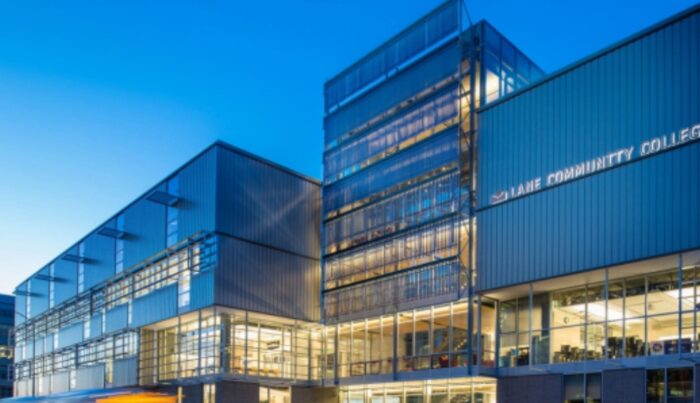Information Updated August 2018

Roger Ebbage is the lead faculty for the Energy Management Program at Lane Community College
Lane Community College, Eugene, OR
1980-1988 and 1992-present
Mainly the Pacific Northwest and Northern California
We are experiencing a very low enrollment period because the
unemployment in our region is very low. We did not start a cohort of new students in 2017-18.
The Energy Management program consistently has 4 adjunct faculty and until July 1, 2018, along with 1 full time faculty. This year, the college has transitioned to a change in delivery mode (explained in the questions below), and the number of adjunct faculty will grow to seven.
Gender: Male 90%, Female 10%
Ethnicity: Caucasian 90%, African American 10%
Veterans: Unknown
2-Year Degrees: Energy Management, Energy Management with a Building Controls Option, Water Conservation
Certificates: Energy Management
Introduction to Energy Management
Online
Quarter
3 Credits
Five years ago Lane Community College completed construction of a 90k Sq.Ft LEED Platinum downtown Eugene campus. The Energy Management program was asked to assist with the design and to move in when construction was completed. Knowing that the program would be relocating from the Lane main campus to the school’s downtown campus, the Energy Program design team recommended that the design consist of training aides built into the building to use for classroom instruction. The program has complete access to all of the energy using systems in the building including the building automation system, which allows the faculty to use the building as a “Living Lab”. The college benefits from this strategy because class systems analytical projects (lighting, HVAC, controls) are delivered to the college facilities division for needed remediation if operation issues are found, (operation issues are always found). Before moving to the downtown campus, the faculty would use main campus buildings and the central plant as a “living lab”, again, reporting operational issues when found.
We have not conducted a formal assessment. However, we are tightly connected to our industry and therefore, have a good grasp of the labor market in the northwest.
There are many reasons for our success. The program hires very talented, caring faculty. The goal is to develop a strong student understanding of the technical components that contribute to a successful energy analyst and combine that with work related information like professional protocol and the soft skills that are not always a part of a student’s character. The program focus is on student success so the program goes to great lengths to insure
students have the best opportunity for completing the program and gaining employment. A small example of our commitment to students is our Student Support Fund. If a student comes to the program with financial issues like a utility bill or apartment rent that they can’t pay, the Student Support Fund will cover the cost so the student does not need to drop a class or the entire program for financial reasons. Small considerations like the above example are the reasons why the Energy Management sees great success.
The Energy Management program has an Industry Advisory Committee consisting of 9 professionals working in the college service area. The make-up is varied within the energy efficiency industry including residential, commercial building analysts, utility employees, City Resource Conservation Management, etc. Advisory committee members must make a three-year commitment.
Every Career / Technical Education program at Lane Community College offers a student internship opportunity. The Energy program requires 6 credit hours (translating to 216 work-place hours) for each student to be awarded the degree. Students may do two internships of 3 credits each to “test drive” a sector of the industry that is appealing. Our employment placement rate is 80+ %.
The Energy Program has obtained a National Science Foundation Advanced Technology (NSF ATE) grant to put the entire program fully online. The program staff developed a strategy to offer a fully online program that includes valuable hands-on class activities (the gold standard for career / technical education programs), without requiring students travel to Lane Community College. The program is working with public utility managers and engineers throughout the Northwest and Northern California to provide Field-Work Mentors who are supervising the class assigned hands-on activities with the cooperation of the electric utility.

View the syllabus for Lane Community College's Introduction to Energy Management course, or visit Lane directly for more information on their Applied Associate Degree & Certificate programs.
View Syllabus 🔒Visit LaneView all Energy Efficiency Program Profiles
Recent News
Copyright @ 2024 Center for Renewable Energy Advanced Technological Education
This material is based upon work supported by the National Science Foundation under Grant #2201631. Any opinions, findings, and conclusions or recommendations expressed in this material are those of the author(s) and do not necessarily reflect the views of the National ScienceFoundation.